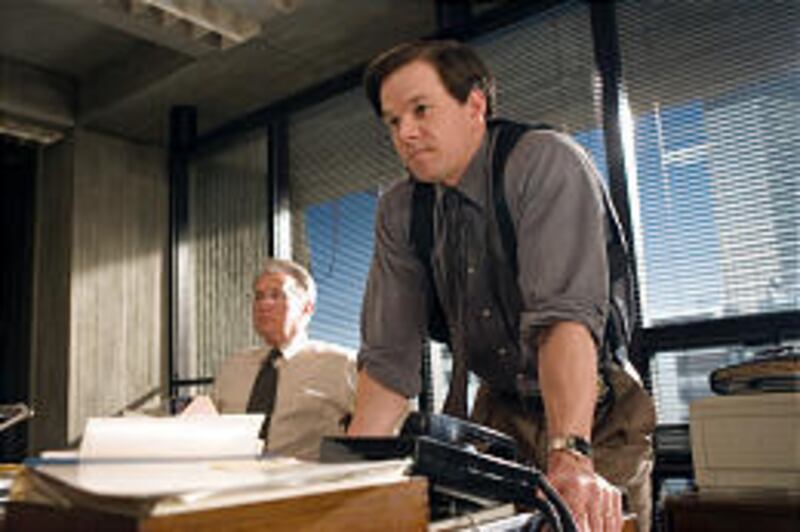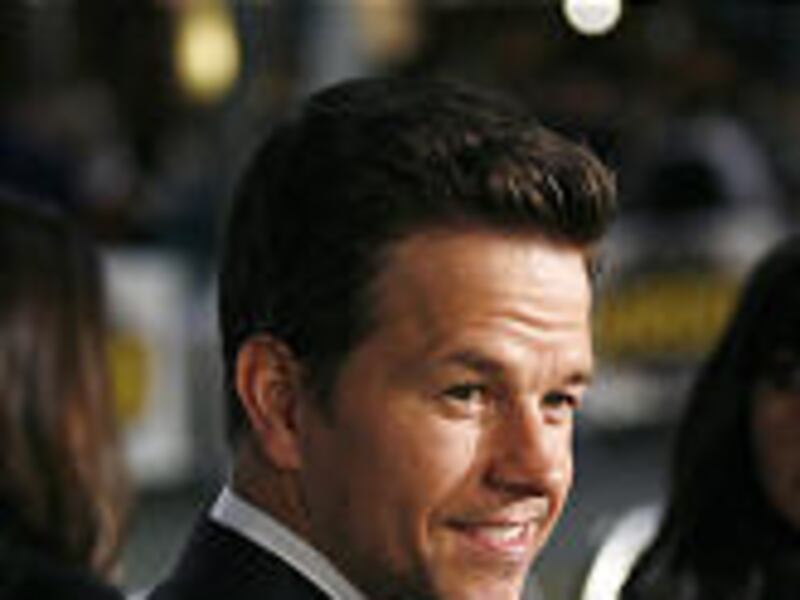Mark Wahlberg refuses to be cool about being nominated for his first Oscar for his supporting role in "The Departed."
"It was absolutely without question the biggest thrill of my life," says Wahlberg, sprawled out on a hotel bed after a day of junket interviews. "Actually, it was the probably the second. The first was getting cast in a Martin Scorsese movie with people like Leo (DiCaprio), Matt (Damon), and Alec (Baldwin), Marty (Martin Sheen), Jack (Nicholson). All of them Oscar-nominated guys, you know, then I get the nomination."
Wahlberg says he never expected to win, and he didn't; the prize went to Alan Arkin. But working with Scorsese — who did finally win the best director award — was the culmination, he says, of Stage One of his acting career.
Stage Two — proving himself as a serious actor — officially begins today, with the release of "Shooter."
Nobody, Wahlberg says, was more aware of the Marky Mark stigma than he was.
That would be defined as the general assumption that Wahlberg was just another bad-boy model and faux white rapper looking to parlay his beefcake good looks and Boston street-tough rep into a Hollywood payday.
"I knew I had to deal with that," he says. "And the way I approached it was to make the decision that I was only going to work with really good directors, or the up-and-comers, people that had a lot of critical respect. First, I wanted to learn the craft, and you do that by working for people that expect more of you than to just show up and do the gig. Then, you have to take responsibility, prove to them you're serious."
That's where "Shooter" comes in.
Wahlberg stars as Bob Lee Swagger, a former military sharpshooter turned special-ops sniper, who reluctantly leaves behind rural retirement, and his distrust for a government that once betrayed him, to take on a special job. A plot to assassinate the president of the United States has been uncovered, and Bob Lee is called on to figure out exactly how it is to be mounted, so it can be thwarted. And once again, the patriotic Bob Lee learns that sincere-sounding men in suits with government IDs cannot be trusted.
"This is a character I've always wanted to play," says Wahlberg. "When I was a kid my dad would take me to these Charles Bronson and Clint Eastwood movies, where they played guys that were sort of hard-wired to do the right thing, even when it meant going up against authority — the guy who doles out justice when no one else will, or can. So I get this script that's about a guy like that, and it's not just well-written, but it also speaks to the sort of stuff we as a country are going through right now. I really wanted to make it.
"It's a complicated story," says Wahlberg. "I had to keep going back to the thing every day. There are conspiracies inside of conspiracies, and my character has to be a step ahead of everybody else playing the game. I had to stay on top of it all."
Which brings us back to Stage Two of the Wahlberg Project, where the actor proves his commitment.
An early indication that Wahlberg was taking his job seriously came in 1998, when the Detroit Free Press started receiving calls that Wahlberg had been sighted in downtown watering holes, at the Windsor Casino and record stores. Was he making a movie here? He wasn't. But he had been cast by director David O. Russell in "Three Kings," playing an airport baggage handler from Detroit in the National Guard, sent to Iraq for the first Gulf War. Wahlberg says he figured if he was playing a working-class guy from Detroit, he ought to get a feel for working-class Detroit, so he spent a couple of weeks hanging out — "just listening and talking to people, observing," he says. "I wanted it be authentic."
The experience would serve him well when John Singleton cast him as a Detroit cop in 2005's "Four Brothers," a loose, updated remake of "The Sons of Katie Elder" set in the Motor City, but filmed mostly in Canada. Once again, he played the working-class, street-smart tough with an explosive edge. In between, Wahlberg played a naive 1970s porn star in P.T. Anderson's "Boogie Nights" — a film he wouldn't make today. "I got kids," he says. He signed on with Tim Burton, figuring if anybody could pull off a remake of "Planet of the Apes," it was Burton. And he was a suave American in Paris romancing Thandie Newton in Jonathan Demme's "Charade" remake, "The Truth About Charlie."
"I learned a lot making all those films and working with all those guys," Wahlberg says. "But now I want to exert my personality, and pick films I want to be in, rather than ones I think I should be in. I think I've earned that."
Fuqua believes Wahlberg has all the stuff needed to head to the top of the A-list, filling the void left by aging heroes like Bruce Willis and Al Pacino.
"He's over having to prove anything to anybody," says Fuqua, "except maybe to himself."


